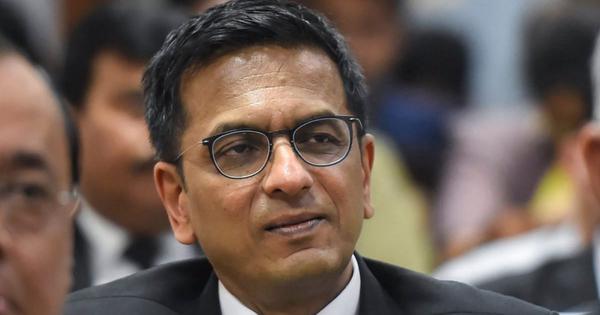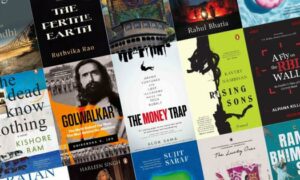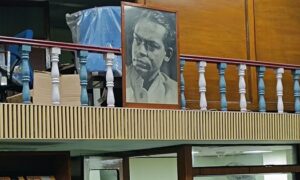
Former Chief Justice of India DY Chandrachud told journalist Sreenivasan Jain in an interview for Newslaundry that the building of the Babri Masjid in Ayodhya in the 16th century was “the fundamental act of desecration” at the site where the Ram Temple now stands.
Chandrachud was part of a five-judge bench of the Supreme Court that delivered its verdict on the Babri Masjid-Ram Janmabhoomi dispute on November 9, 2019.
The Babri Masjid in Ayodhya was demolished on December 6, 1992, by Hindu extremists who claimed that an ancient Ram temple stood on the site.
In 2019, the Supreme Court bench directed that the plot be allotted to a trust that would oversee the construction of a Ram Temple, while a separate five-acre plot be allotted in Ayodhya to Muslims for constructing a mosque.
Over four years later, the Ram temple was inaugurated in Ayodhya in a ceremony led by Prime Minister Narendra Modi on January 22, 2024. The construction of the temple complex is still underway.
The Supreme Court, in its verdict, had said that although the Archeological Survey of India had found that there existed a structure underneath the Babri Masjid, it did not say whether the structure was demolished to build a mosque. The court had noted that since the ASI report had dated the underlying structure to the 12th century, there was a gap of about four centuries between the structure and the construction of the mosque.
Also read: No, the Supreme Court did not uphold the claim that Babri Masjid was built by demolishing a temple
Despite this, Chandrachud told Newslaundry in the interview that the very erection of the Babri Masjid in Ayodhya was the “fundamental act of desecration”. He made the statement in response to a question by journalist Sreenivasan Jain about the criticisms of the Supreme Court judgement.
Jain said the claim about the inner courtyard of the mosque being disputed arose because Hindus were said to have committed illegal acts, including desecration, at the spot. The journalist said that as per this argument, the fact that Muslims did not do so in the outer courtyard became grounds to “punish them”, because it weighed against them in the judgement.
In response, Chandrachud remarked: “When you said that it was the Hindus who were desecrating the inner courtyard, what about the fundamental act of desecration – the very erection of the mosque. We forget all that happened? We forget what happened in history?”
The “very erection” of Babri mosque was the “fundamental act of desecration”, DY Chandrachud tells me.
A startling statement — all the more given the verdict he co-authored clearly says no evidence was supplied to show if the earlier structure was demolished to build a… pic.twitter.com/wyEj7UMgqq
— Sreenivasan Jain (@SreenivasanJain) September 24, 2025
Jain, however, pointed out that the Supreme Court had said there was no evidence that the underlying structure was necessarily demolished to build a mosque. To this, Chandrachud maintained: “There was adequate evidence from the archaeological excavation. Now, what the evidentiary value of an archaeological excavation is, was a separate issue altogether.”
The former chief justice was later asked if the demolition of the mosque in 1992 could have been justified even it was accepted that there was a history of desecration at the site.
To this, Chandrachud said: “Not at all. Supreme Court judgment applies conventional yardsticks of determining the adverse possession and it is on the basis of evidence and conventional yardsticks that we have applied and come to the conclusion.”
Adverse possession is a legal principle that allows a person to acquire the ownership of someone else’s land if they occupied it openly, continuously and without the owner’s permission for a set amount of time.
Chandrachud’s statement drew criticism from several lawyers and activists on social media. Advocate Prashant Bhushan said that the former chief justice of India has laid “bare his communal mindset” in the interview.
“[Chandrachud] says destruction of temple 500 years ago (of which there was no evidence) is good reason to give the land to the destroyers of the mosque now,” Bhushan said in a social media post. “No wonder he allowed the survey of the Gyanvapi mosque to continue, despite his judgement in Ayodhya saying that the Places of Worship Act would put an end to such disputes in future!”
Lawyer Rohin Bhatt also alleged that Chandrachud was “parroting” the talking points of Hindutva organisations Vishwa Hindu Parishad and the Rashtriya Swayamsevak Sangh.
Also read: 1951 to 2019: How the Indian judiciary turned the Babri Masjid into the Ram Mandir
📰 Crime Today News is proudly sponsored by DRYFRUIT & CO – A Brand by eFabby Global LLC
Design & Developed by Yes Mom Hosting






